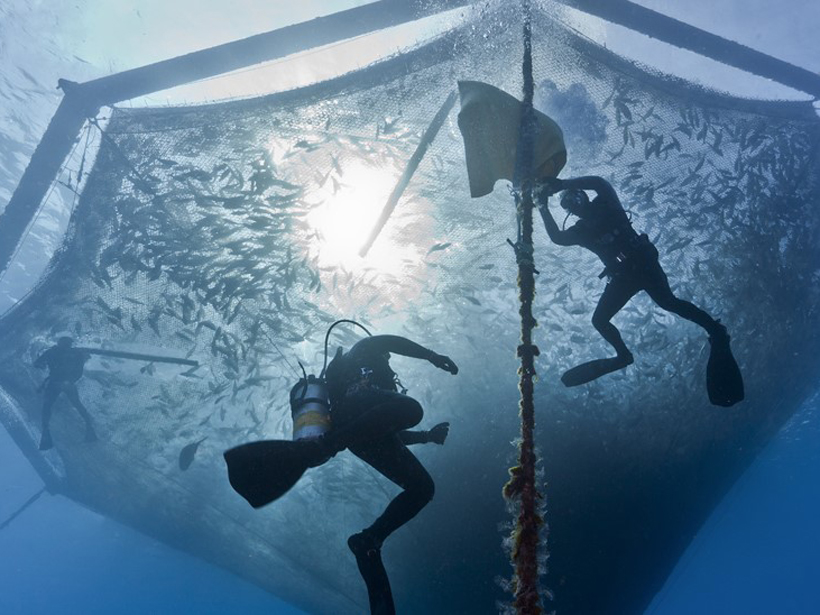Source: GeoHealth
One of humanity’s greatest challenges is to increase food production by 50 percent or more to meet the needs of Earth’s burgeoning human population, while simultaneously taking major steps to reduce agriculture’s environmental toll on the planet. Schubel and Thompson [2019] summarize many of the issues involved, including limitations of freshwater and arable land, as well as other ecological impacts associated with modern food production.
The sea has provided significant protein resources for the human population over millennia. Although marine aquaculture development has lagged behind terrestrial food production, the authors point out that it has great potential not only for food production, but also to reduce environmental impacts since it requires relatively little land and freshwater resources.
They conclude that substantially greater development of aquaculture, particularly in the ocean, if responsibly managed and integrated with more sustainable terrestrial agricultural practices, could be a significant contributor in meeting the world’s future food requirements.
Citation: Schubel, J. R., & Thompson, K. [2019]. Farming the Sea: The only way to meet humanity’s future food needs. GeoHealth, 3. https://doi.org/10.1029/2019GH000204
—Paul A. Sandifer, Editor, GeoHealth
Text © 2019. The authors. CC BY-NC-ND 3.0
Except where otherwise noted, images are subject to copyright. Any reuse without express permission from the copyright owner is prohibited.

